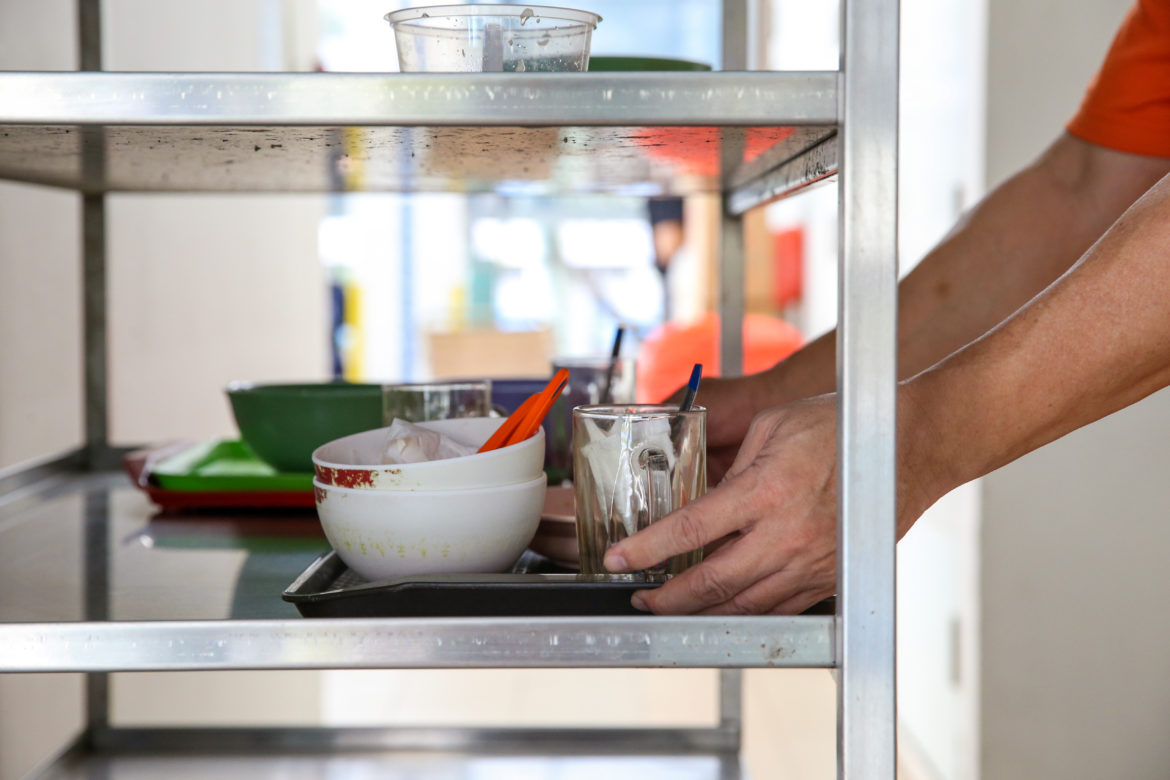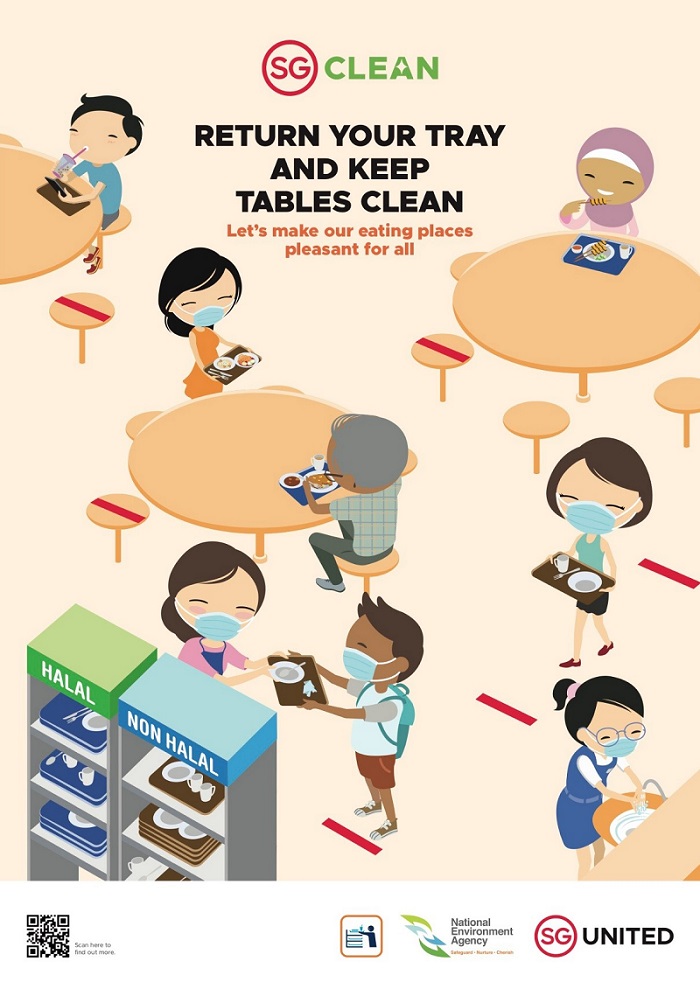Dining out is a favourite Singaporean pastime. Those who dine at hawker centres are now required to clear tables of dirty trays, crockery and litter after their meals. The move, announced by the National Environment Agency (NEA) on May 14, is part of a broader effort to maintain good public hygiene and cleanliness standards during the Covid-19 pandemic.
This self-service approach will also help to keep our dining places safe, as a majority of the cleaning workforce comprise seniors who may be more vulnerable to diseases such as Covid-19.
To help diners familiarise themselves and adjust, the new rule enforced by NEA kicked in with a three-month advisory period from June 1 to August 31, 2021. Safe Distancing Ambassadors, SG Clean Ambassadors, Community Volunteers and NEA officers will be deployed at hawker centres to remind diners to clear their dirty trays, crockery and litter.
In line with the enforcement, NEA will install more than 75 tray and crockery return racks at hawker centres, on top of the 900 existing racks, to improve the table-cleaning workflow. Posters and banners will also be installed at hawker centres to remind diners to clear their tables. The Singapore Food Agency will also work with NEA to roll out similar enforcement at coffee shops and food courts in the fourth quarter of this year.
From September 1, NEA will take enforcement action against diners at hawker centres who leave dirty trays, crockery and litter, such as used tissues, wet wipes, straws, wrappers, canned drinks, plastic bottles and food remnants. The enforcement will kick in at coffee shops and foodcourts from 1 January, 2022, after a two month advisory period from October to December 2021. Those who do not heed the advice will have their particulars taken down and be issued a written warning for the first offence. Second-time offenders will be fined $300, and subsequent offenders may face court fines.
However, enforcement action will not be taken against the elderly, the disabled and children who are unable to clear their tables. Instead, family members or dining companions of these groups should help dispose of the litter and return the dirty trays and crockery. The officers will also educate and advise children on the importance of clearing their tables after their meal.
It is a gracious act to leave behind a clean table for the next patron, and everyone can play a part in maintaining a clean dining environment as well as safeguarding against any public health risk.


